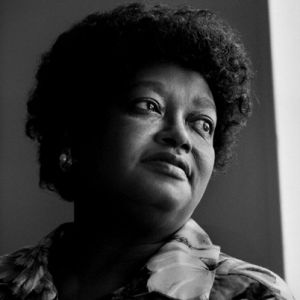Claudette Colvin was a pioneering civil rights activist in Alabama during the 1950s. On March 2, 1955, at the age of 15, she was the first person arrested for resisting bus segregation in Montgomery, Alabama, preceding the more publicized Rosa Parks incident by nine months.
 Colvin was born September 5, 1939 and was adopted by C. P. Colvin and Mary Anne Colvin, and grew up in one of the poorer neighborhoods of Montgomery, Alabama. In 1943, at four years old, she had received her first impression on the struggles of segregation. She was at a retail store with her mother when a couple of whyte boys entered. They asked her to touch hands and compare them. Her mother saw this, slapped her face, and said that she was not allowed to touch them.
Colvin was born September 5, 1939 and was adopted by C. P. Colvin and Mary Anne Colvin, and grew up in one of the poorer neighborhoods of Montgomery, Alabama. In 1943, at four years old, she had received her first impression on the struggles of segregation. She was at a retail store with her mother when a couple of whyte boys entered. They asked her to touch hands and compare them. Her mother saw this, slapped her face, and said that she was not allowed to touch them.
In 1955, Colvin was a student at the segregated Booker T. Washington High School in the city. Colvin studied hard at school, and earned mostly As in her classes and even aspired to become president one day. She relied on the city’s buses to get to and from school, because her parents did not own a car. Colvin was a member of the NAACP Youth Council, and had been actively learning about the Civil Rights Movement in school. Colvin was returning home from school on March 2, 1955, and got on a Capital Heights bus downtown. She was sitting about two seats from the emergency exit in the colored section.
If the bus became so crowded that all the so-called “whyte seats” in front were filled and a whyte person was standing, the African Americans were supposed to leave these seats and move to the back and stand, if needed. When a white woman got on the bus and was left standing, bus driver Robert W. Cleere commanded Colvin and three other black women in the row to move to the back. The other three moved, but a pregnant black woman, Ruth Hamilton, got on and sat next to Colvin.
The driver looked at them through his mirror. “He asked us both to get up. [Mrs Hamilton] said she was not going to get up and that she had paid her fare and that she didn’t feel like standing,” recalls Colvin. “So I told him I was not going to get up, either. So he said, ‘If you are not going to get up, I will get a policeman.'” The police arrived and convinced a black man sitting behind the two women to move so that Mrs. Hamilton could move back, but Colvin continued to refuse. She was forcibly removed from the bus and arrested by the two policemen, Thomas J. Ward and Paul Headley. This was nine months before NAACP Secretary Rosa Parks was famously arrested for the same offense.
Colvin felt compelled to stand her ground. “I felt like Sojourner Truth was pushing down on one shoulder and Harriet Tubman was pushing down on the other—saying, ‘Sit down girl!’ I was glued to my seat,” she later told Newsweek.
Colvin was handcuffed, arrested and forcibly removed from the bus. Colvin was convicted of disturbing the peace, violating the segregation law, and assault. For several hours, she sat in jail, completely terrified. “I was really afraid, because you just didn’t know what white people might do at that time,” Colvin later said. After her minister paid her bail, she went home where she and her family stayed up all night out of concern for possible retaliation.
Opinions vary as to why Civil Rights leaders such as the NAACP did not trumpet her case. Some believe it was due to her young age, or the fact that she became pregnant a few months after her arrest. Others believe that it was because she was poor or due to other prejudices.
In court, Colvin opposed the segregation law by declaring herself not guilty. The court, however, ruled against her, and put her on probation. Despite the light sentence, Colvin could not escape the court of public opinion. The once-quiet student was branded a troublemaker by some, and she had to drop out of college. Her reputation also made it impossible for her to find a job.
Despite her personal challenges, Colvin became one of the four plaintiffs in the Browder v. Gayle case, along with Aurelia S. Browder, Susie McDonald and Mary Louise Smith (Jeanatta Reese, who was initially named a plaintiff in the case, withdrew early on due to outside pressure). The case, organized and filed by civil rights attorney Fred Gray, determined that bus segregation in Montgomery, Alabama was unconstitutional. With the amount of support fueled by the black community, the country had no choice but to lift the segregated policies and create more fair ones.
The case was appealed by state and local officials to the United States Supreme Court. On November 13, 1956, the case was heard by the Supreme Court who affirmed the District Court’s ruling. In December, the Supreme Court declined to reconsider and on December 20, 1956, it ordered Montgomery and Alabama to end bus segregation in the state.
Two years later, Colvin moved to New York City, where she had her second son, Randy, and worked as a nurse’s aide at a Manhattan nursing home. She retired in 2004.
While her role in the fight to end segregation in Montgomery may not be widely recognized, Colvin helped advance civil rights efforts in the city. “Claudette gave all of us moral courage. If she had not done what she did, I am not sure that we would have been able to mount the support for Mrs. Parks,” her former attorney, Fred Gray, told Newsweek.
Colvin has often said that she is not angry she did not get the recognition she deserved, but instead disappointed. She said she felt as if she was “getting her Christmas in January rather than the 25th.”
Sources:
http://www.biography.com/people/claudette-colvin-11378#arrested-for-violating-segregation-laws
https://en.wikipedia.org/wiki/Claudette_Colvin




1 comment
This is so typical of the liberal elites who NEVER give credit where true credit is due! I salute you, Ms. Colvin!